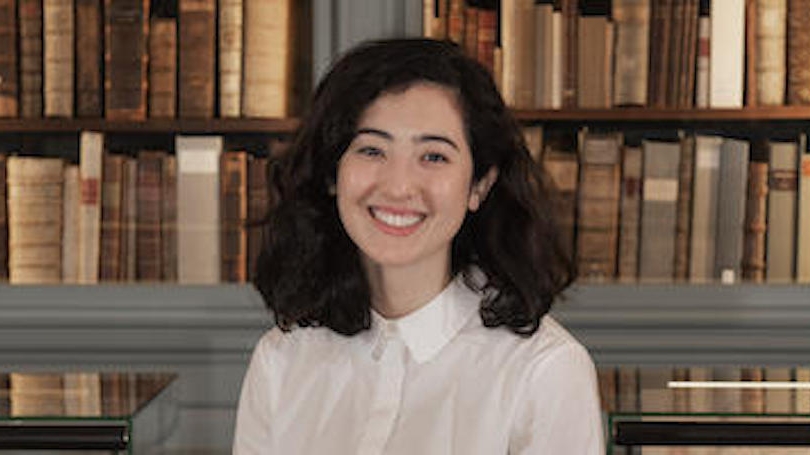
- Curriculum
- Foreign Study
- Projects & Awards
- Inclusivity
- News & Events
- People
- Our graduates
Back to Top Nav
Back to Top Nav
Back to Top Nav
Alexandra Schultz received her BA in Classics and Computer Science from Brown University in 2011 and her MSt in Greek and Latin Languages and Literature from Christ Church, Oxford in 2012 with funding from a US-UK Fulbright award. She then worked for two years as a software engineer at Microsoft before coming to Harvard in 2014 for her PhD in Classical Philology. In 2021 she graduated from her PhD and took up a Research Fellowship in Classics at Jesus College, Cambridge.
As a literary critic and cultural historian, I study the politics of literature, the history of knowledge, and gender and sexuality in Greco-Roman antiquity. My current book project, Libraries Beyond Alexandria, radically rethinks the history of libraries in the Greco-Roman world, and with it the legacy of classical antiquity today. I am also currently working on three related articles that respectively treat the early history of Greek alphabetization, literary history and canonization in the Hellenistic period, and fantasies about plundered libraries in Imperial Greek and Roman sources. Some of my recent projects include my article "Language and Agency in Sappho's Brothers Poem" (Helios 2021), which employs feminist critique to argue that, by adapting traditional masculine discourse, Sappho's poetry depicted women as agents of their own destiny; and a forthcoming piece on the role of enslaved workers and collectors in shaping the history of Roman archives and libraries.
Her office is in Reed Hall, room 316.
Alexandra.Schultz@dartmouth.edu
Winter 2024
GRK 1 Introductory Ancient Greek Study of Greek grammar, syntax, and vocabulary accompanied by reading of simple Greek prose selections. This course is designed to be followed immediately by GRK 3 in a two-term sequence. Schultz
LAT 32 The Poetry Book Studies the development of the carefully crafted and deliberately arranged book of poetry at Rome, including one complete libellus in Latin with the possibility of additional examples in translation. Authors that may be read include Vergil, Horace, Propertius, Ovid, Statius, and Martial. As time allows, the class will also explore later examples of book design and artistry, drawing on Dartmouth's collection of rare books. Schultz